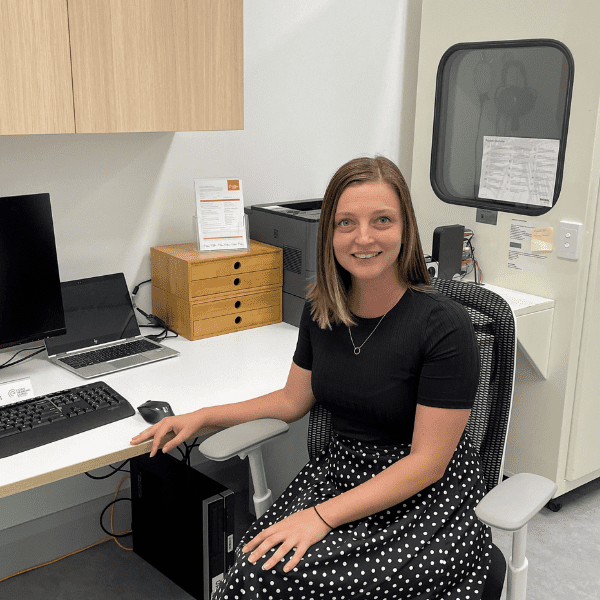
Cardiovascular Health and Hearing
Regular exercise is widely recognised as a key component of maintaining good health and wellness as well as preventing chronic diseases. The benefits of exercise extend beyond physical fitness and include improved mental health, enhanced cognitive function, and reduced risk of various health conditions – including hearing loss.
While numerous studies have explored the overall health benefits of exercise, less research has been conducted on the link between exercise and hearing sensitivity. Despite this gap in research, recent studies have shown that cardiovascular fitness levels are positively correlated with hearing sensitivity. In this article, we will delve into the relationship between exercise and hearing health, highlighting the potential benefits that exercise can offer to maintain good hearing.
Cardiovascular Health and Its Correlation with Healthy Hearing
It’s commonly accepted that aerobic exercise can greatly benefit cardiovascular health. However, what’s less understood is that cardiovascular health is also linked to better hearing. Recent research has shown that as cardiovascular health improves, so can hearing sensitivity. This means that older individuals who are not genetically predisposed to hearing loss and maintain good cardiovascular health are more likely to retain hearing capabilities (Alessio et al., 2014a, Alessio et al. 2014b).
The connection between exercise and better hearing has challenged the assumption that hearing loss is an inevitable part of aging. Research has consistently shown a positive relationship between the cardiovascular system and the functional ability of the organs and tissues in the inner ear (Alessio et al. 2014a, Alessio et al. 2014b). Research has also shown that poorer cardiovascular health is associated with poorer hearing (Tan et al. 2018)
The Physiological Effects of Exercise on Hearing Health
The enhanced circulation of blood needed to supply the bones and muscles of the inner ear is a key factor in the protective effects of cardiovascular fitness. Blood flow can also be impeded by factors such as cholesterol build-up in the walls of the artery, vasoconstriction (narrowing), high blood pressure, smoking, stress, and certain personality types (Alessio et al., 2014a, Alessio et al. 2014b).
While one-time exercise may divert blood flow from the inner ear to other parts of the body, regular exercise has been shown to result in an increase in the flow of blood that is well-stocked with nutrients and protective proteins, as well as blood that is not littered with cholesterol, triglycerides, or too much sugar. This results in blood vessels that are more supple and resilient to blood pressure changes, impacting every square inch of the body – including the structures of the ear (Alessio et al. 2014).
The stria vascularis, a part of the ear responsible for hearing, is located in the cochlea and relies on adequate blood flow to function properly. Improved blood circulation to this area of the ear as a result of cardiovascular fitness allows for constant replenishment of blood flow to the sensory receptors responsible for hearing. Cardiovascular fitness has also been found to reduce neurotransmitter loss associated with aging and preserve central auditory processing, which is critical in interpreting speech (Alessio et al. 2014).
Individuals with high cardiovascular health and fitness levels have been found to maintain better hearing well into old age compared to their low-fit counterparts. This relationship between cardiovascular health and hearing ability can be attributed to improved blood circulation, prevention of neurotransmitter loss, and less noise-induced hearing loss.
Research from the Journal of Neuroscience
A 2016 study by Han et al. aimed to investigate the relationship between cardiovascular fitness and hearing sensitivity using mice as subjects. The researchers divided the mice into two groups: one that was given exercise training and one that was sedentary. After eight weeks, the exercise-trained mice showed significant improvements in cardiovascular fitness and hearing sensitivity compared to the sedentary group.
The study also looked at the mechanisms underlying this relationship and found that exercise appeared to promote blood flow to the cochlea, the part of the ear responsible for hearing. Additionally, the exercise-trained mice showed reduced levels of inflammation and oxidative stress in the cochlea, which are known to contribute to hearing loss.
Overall, the findings support the other studies mentioned in this article and suggest that regular exercise can improve both cardiovascular fitness and hearing sensitivity and may provide a potential preventative measure against age-related hearing loss.
In conclusion, exercise plays a vital role in maintaining hearing health. While there is still much research to be done, several studies have shown that cardiovascular fitness and physical activity can positively impact hearing sensitivity, particularly in individuals over the age of 50. While exercise may not be a cure for hearing loss, it may be a preventative measure to maintain overall hearing health. Incorporating regular physical activity into one’s lifestyle can have significant benefits for physical health, leading to a better quality of life.
References
Carmen RE. The Consumer Handbook on Hearing Loss and Hearing Aids. A Bridge to Healing Fourth Edition. 2014. http://www.hearingproblems.com/Hearing_Loss_and_Hearing_Aids_Introduction.htm
Alessio HM, Hutchinson KM. Fitness and Better Hearing Part 1. Hearing Review. 04-2014. https://hearingreview.com/hearing-loss/patient-care/fitness-better-hearing-part-1-proponents-idea-better-hearing-leads-better-health-also-recognize-fit-body-can-positively-impact-hearing
Han C, Ding D, Lopez MC, Manohar S, Zhang Y, Kim MJ, Park HJ, White K, Kim YH, Linser P, Tanokura M, Leeuwenburgh C, Baker HV, Salvi RJ, Someya S. Effects of Long-Term Exercise on Age-Related Hearing Loss in Mice. Journal of Neuroscience.36(44):11308-11319; 2016.. https://www.ncbi.nlm.nih.gov/pmc/articles/PMC5148246/






